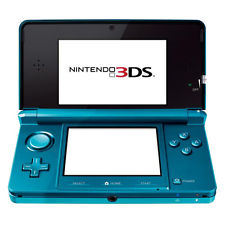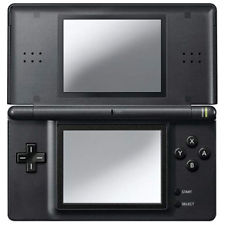|
November 27th, 2006, 18:48 Posted By: wraggster
Via Newyorker
Fifteen years ago, the video-game industry was ruled by one player, Nintendo. The company had machines in a third of American homes, and it was Japan’s most profitable electronics company. The title of a 1993 book summed up the situation: “Game Over: How Nintendo Conquered the World.” Then the Sony PlayStation arrived, and everything changed. Today, Sony is the dominant force, and its chief rival is not Nintendo but Microsoft, which makes the Xbox. Two weeks ago, the début of Sony’s PlayStation 3 was greeted by crowds of hysterical consumers anxious to get their hands on the new console, billed as the most powerful gaming machine ever. When Nintendo’s new console, the oddly named Wii, appeared, a few days later, there were excellent reviews and expectations of good sales, but no more talk about world conquest. If Sony and Microsoft are the major-party nominees, Nintendo is more like a cool third-party candidate.
You might expect, then, that Nintendo would be struggling to stay afloat. After all, the prevailing wisdom is that companies need to be market leaders, or face disaster. This approach was famously institutionalized by Jack Welch, who, when he took over as C.E.O. of G.E., laid down a rule that he described as a “central idea” of his tenure: the company would quit any business in which it was not No. 1 or No. 2. The lesson that people took away from this was clear—third place is for losers. “First prize is a Cadillac Eldorado,” Alec Baldwin’s character says in the film “Glengarry Glen Ross.” “Second prize is a set of steak knives. Third prize is you’re fired.” Nintendo, though, has not just survived out of the spotlight; it has thrived. It has five billion dollars in the bank from years of solid profits, and this past year, though it spent heavily on the launch of the Wii, it made close to a billion dollars in profit and saw its stock price rise by sixty-five per cent. Sony’s game division, by contrast, barely eked out a profit and Microsoft’s reportedly lost money. Who knew bringing up the rear could be so lucrative?
Sony and Microsoft are desperate to be the biggest players in a market that, in their vision, will encompass not just video games but “interactive entertainment” generally. That’s why the PlayStation 3 and the Xbox 360 are all-in-one machines, which allow users not just to play video games but also to do things like watch high-definition DVDs and stream digital music. Sony and Microsoft’s quest to “control the living room” has locked them in a classic arms race; they have invested billions of dollars in an attempt to surpass each other technologically, building ever-bigger, ever-better, and ever-more-expensive machines.
Nintendo has dropped out of this race. The Wii has few bells and whistles and much less processing power than its “competitors,” and it features less impressive graphics. It’s really well suited for just one thing: playing games. But this turns out to be an asset. The Wii’s simplicity means that Nintendo can make money selling consoles, while Sony is reportedly losing more than two hundred and forty dollars on each PlayStation 3 it sells—even though they are selling for almost six hundred dollars. Similarly, because Nintendo is not trying to rule the entire industry, it’s been able to focus on its core competence, which is making entertaining, innovative games. For instance, the Wii features a motion sensor that allows you to, say, hit a tennis ball onscreen by swinging the controller like a tennis racquet. Nintendo’s handheld device, the DS, became astoundingly popular because of simple but brilliant games like Nintendogs, in which users raise virtual puppies. And because Nintendo sells many more of its own games than Sony and Microsoft do, its profit margins are higher, too. Arguably, Nintendo has thrived not despite its fall from the top but because of it.
Nintendo’s success is not an anomaly, either. The business landscape of the past couple of decades is replete with companies that have flourished as third wheels, and with companies that have struggled to make money despite being No. 1 in their industries. (Today, would you rather be Honda or G.M.?) And while it’s true that in many industries there is a correlation between market share and profitability, one doesn’t necessarily lead to the other. A recent survey of the evidence on market share by J. Scott Armstrong and Kesten C. Green found that companies that adopt what they call “competitor-oriented objectives” actually end up hurting their own profitability. In other words, the more a company focusses on beating its competitors, rather than on the bottom line, the worse it is likely to do. And a study of the performance of twenty major American companies over four decades found that the ones putting more emphasis on market share than on profit ended up with lower returns on investment; of the six companies that defined their goal exclusively as market share, four eventually went out of business.
The point is that business is not a sporting event. Victory for one company doesn’t mean defeat for everyone else. Markets today are so big—the global video-game market is now close to thirty billion dollars—that companies can profit even when they’re not on top, as long as they aren’t desperately trying to get there. The key is to play to your strengths while recognizing your limitations. Nintendo knew that it could not compete with Microsoft and Sony in the quest to build the ultimate home-entertainment device. So it decided, with the Wii, to play a different game entirely. Some pundits are now speculating, ironically, that the simplicity of the Wii may make it a huge hit. Nintendo wouldn’t complain if that happened. But, in the meantime, third prize is looking a lot better than steak knives.
For more information and downloads, click here!
 There are 5 comments - Join In and Discuss Here There are 5 comments - Join In and Discuss Here
|
|
 NES
NES










